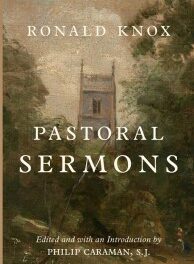We support our Publishers and Content Creators. You can view this story on their website by CLICKING HERE.
Celebrated truly, Sunday is the means for harmonizing our mundane economies with the economy of salvation God is always working in the world. Authentic celebration of the Lord’s Day restores man to an awareness of his true dignity and of the proper orientation of his daily labor.
Money, the Lord’s Day, and the Spirit Who Convicts
The Gospel places upon its readers an urgent injunction to learn to read the signs of the times. It belongs to the follower of Christ not simply to grow adept in reading the sky or the sea or the market but rather to read time against eternity and the projects of men against the designs of Providence. Pope St. John Paul II, following the reminder of Christ’s words presented in “Gaudium et Spes,” was keenly attuned to the difficulty and necessity of attaining to such spiritual literacy, particularly in an age which, to follow Shakespeare’s Iago, makes a fig of virtue and insists only that we put money in our purse.
In matters of economy, the West has as a culture experienced the sort of slow ethical transformation which so often ensnares individuals, leading them by slow degrees to a concern only for their own pursuits and pleasures, and this is nowhere more apparent, albeit in a seemingly innocuous way, than in the abandonment of Sunday as a day of rest in the Lord. Indeed, it might be said that there is no sign of the times more blatantly indicative of the transformation of Christendom than the loss of Sunday as a day oriented to worship. Historian Robert Louis Wilken put it thus in an article published in First Things in 2004: “At eleven o’clock on Sunday morning at Home Depot or Lowe’s the lines of folks with cans of paint, two-by-fours, and joint cement stretch almost as far as they do on a Saturday morning. The only lingering difference between Sunday and other days of the week is that the malls open later and close earlier.”1 Declines in Mass attendance since the 1950s are well documented, yet even among those who persist in their Sunday Mass observance, the rest of Sunday, though perhaps not a work day, is still one deeply oriented toward labor devoted to monetary gain. It is the catch-all day, the day of lawn-mowing and laundry-washing, of shopping and exercising, of gardening and watching television and football.
While modern treatment of the Lord’s Day might seem far removed from the economic injustices which are everywhere in evidence around us, St. John Paul II’s writings might lead us to consider that the two are in fact intimately linked, that failure to participate properly in the economy of salvation tends to the dissolution of the economy of man, that a failure in charity to man is tethered to a failure in charity to God.
Economic injustice is the basis of Christ’s declaration that “the poor you will always have with you” (Matt 26:11). However, these words are not Christ’s license for injustice but rather His indictment of the hardness of heart that feeds poverty. Yet it is not the case that all material prosperity is the result of injustice. Consider the farmer who for many years gives himself to the cultivation of his earth and who sees his land give a rich harvest, or the fisherman who studies the ways of the sea and comes home with his nets filled, or the businessman who deals honestly and prudently and enjoys plentiful gain. Often a man merits the abundance he enjoys. On the material plane, this good is due to him, and this, in the classical sense, is justice. From this abundance, of course, the perfection which is charity enjoins a man to give of his own substance to supply for the needs of those who cannot supply for their own.2 In giving charity to their neighbors, the wealthy also do justice to God. The charitable gift recognizes, first, that God is the source of all goodness, material and otherwise, and second, that Christ Himself is to be found in the hungry, the thirsty, the naked, and the cold.
On the other hand, man does justice to God through performing those acts of worship that the Gospel demands. Man owes through all time the sacrifice of the Son which is made present in the Mass. And the justification that Christ works, the setting right of relations between God and man, renews man’s need to fulfill that whole ethical code, established in the Ten Commandments and enriched by the Beatitudes, whereby man lives out that proper ordering of things willed by the Father. Put simply, the Lord’s Day marks the supreme and wholly marvelous work of the Paschal Mystery, the result of God’s love for man, and man, seeking to do justice to this divine largesse, becomes capable of extending God’s love to his neighbor.
But daily economic concerns can often make proper celebration of the Lord’s Day difficult. For many of those under financial stress, working on Sunday may be a practical necessity, either to make ends meet or to meet the demands of an employer. From the standpoint of large corporations, it is often the case that Sunday observance no longer seems a sacrifice worth making. A day of closed doors is a day of wasted profits.
A full analysis of the modern economy is of course far beyond the scope of this paper, but by following St. John Paul II’s suggestions regarding the economic injustice witnessed by the poverty of our neighbors and the religious injustice embodied in the dissolution of observance of the Lord’s Day, we might at least emphasize how two types of sin seem especially to have contributed to this divergence between the economy of man and the economy of salvation.
***
Dante Alighieri places the sin of usury at the mid-point of his Inferno, and he locates the terrace of sloth, or acedia, halfway up the mountain of Purgatory. Usury, for Dante, is close to the heart of man’s injustice to his fellow men, while sloth is at the heart of man’s lack of charity, and an analysis of these two sins can go a long way in helping us to read the signs of the times.
By “usury,” we refer to that excessive imposition of interest which ostensibly serves as security for the lender and frequently proves crippling for the borrower. Shakespeare offers the keenest possible image of the practice in The Merchant of Venice, when the interest on Shylock’s loan to Antonio is set at an actual pound of the latter’s flesh. Pope Leo XIII condemned the mischief worked by “rapacious usury,”3 and Pope Francis has said that usury“humiliates and kills.”4 St. John Paul II, addressing the same anti-usury foundation as Pope Francis, noted how widespread usury is and how it brings with it “dramatic social consequences.”5 Although John Paul did not comment directly on usury in Centesimus Annus, he repeatedly called for wealthy nations to forgive the debts of poor nations as an element of a millennial Jubilee in which he saw such great possibilities for restored hope among mankind.6
While indebtedness has come to seem an inevitable part of modern living, and indeed many economists propose that economic growth can only be founded on debt, debt bears with it an intense burden of anxiety. It is perhaps not merely coincidental that levels of depression have risen alongside high-interest debts in the years since the COVID-19 pandemic began. Debt, particularly with hefty interest, tends precisely to that distension in time, that being drawn apart between the past and the future, that St. Augustine saw to be at the heart of human anxiety and so much of human sinfulness. The man who has fallen into great debt looks back with anguish upon his mistakes and looks forward with misery to the demands of his creditors. He cannot rest for the ringing of the phone, the delivery of the mail, the fear that burns in his heart, and the sense that there is indeed no way out.
From this, we can begin to see a whole complex of ways in which the burden of debt tends to disturb man’s living of the Lord’s Day. On the one hand, the practical needs of escaping a burden of debt may mean that a man gives the Lord’s Day to a kind of desperate labor. Perhaps he finds a second or even third job and so can no longer enjoy Sunday as a day of rest, whether in the plain sense of dispensation from menial work or in the richer sense of rest in the Lord in the act of worship. And on the other hand, the psychological burden of debt may so thoroughly distract a man from his worship that it might prevent his experiencing it as a moment of Jubilee, a moment of that restoration which God from the beginning seeks to establish in the heart of man. Hence the widespread phenomenon of a kind of depression or gloom which creeps into the heart as Sunday draws on toward evening and the dreaded return to the responsibilities of the work week. We are made to rest in God by means of the eternal Paschal feast of which our earthly Masses are a temporal extension. But if we cannot be present to the Lord even for an hour, then how can we expect to be present to Him in eternity?
St. John Paul II was profoundly attuned to the challenges facing man’s celebration of the Paschal Mystery and the links between those challenges and the economic landscape. He notes in his apostolic letter Dies Domini that while for many centuries it was easier for Christians to celebrate Sunday in an authentic manner, “changes in socioeconomic conditions have often led to profound modifications of social behaviour and hence of the character of Sunday” even in those countries which still recognize the “festive character” of the Lord’s Day.7 In many places, Sunday has become just another part of the “weekend,” that period of respite from the workaday world which, though not without its positive elements, can dissolve the true meaning of Sunday as the day of the Resurrection. Hence “it can happen that people stay locked within a horizon so limited that they can no longer see ‘the heavens.’ ”8 That quiet desperation which Thoreau called characteristic of the Mass of men9 may often be most keenly felt of a Sunday afternoon, as the entertainments of the weekend fade into the irretrievable past and the gloom of Monday rushes up to meet us.
***
The modern difficulty of celebrating the Lord’s Day is closely tied not only to economic practices, though, but also to the sin of acedia. Evelyn Waugh, with other writers, calls acedia the besetting sin of the modern age.10 And this would seem to be borne out by St. Thomas’s observation that acedia is a sin against the commandment to honor the Sabbath.11 Acedia, considered as sadness about spiritual good, is particularly apparent in that form of modern malaise that makes the Lord’s Day sorrowful, that refuses the rest offered to us in active participation in the Eucharist. It makes Sunday a day of distraction, in multiple senses of the word: a day of running about to catch up on menial tasks, a day of avoiding the return to one’s day-to-day existence, a day of sulking through the Mass obligation, a day of anguish over the cares of the world.
Yet the Lord’s Day ought to be a Jubilee, a moment where time meets eternity and where the well-examined heart comes out like a spotless bride to receive the Lord, to consume Him and be one with Him so as to enter into a life that will in the course of time blend seamlessly into an eternity both intimately recognizable and ineffably splendid. It should become “the soul of the other days” such that the one who drinks deeply of its water “is always in the Lord’s Day, and is always celebrating Sunday.”12
Celebrated truly, Sunday is the means for harmonizing our mundane economies with the economy of salvation God is always working in the world. Authentic celebration of the Lord’s Day restores man to an awareness of his true dignity and of the proper orientation of his daily labor. Likewise, it offers the sacrifice of a day’s profits in recognition of the Providence of God, who alone can supply man’s security. It ensures a kind of salutary waste—of time, of resources, of our own projects and schemes—that is the mark of all true festivity. It sets the world back in order and so allows the Father to be at work, and the Son with Him.
This work of Father and Son in creating and re-creating, in ordering and fulfilling, proceeds in spite of man’s entrenchment in sin, in occasional sins which surprise him and then pass away as well as in habitual sins which lead him into a desolate version of himself he can scarcely recognize. How much more quickly and joyfully does the work progress when, through the Spirit who convicts concerning sin, man comes to his senses, finds himself in the shadowy wood, and turns again to the right way. And so we pray, through the intercession of St. John Paul II, that the Spirit come with His fire, awakening us to those economic sins that have turned us from the celebration of the Lord’s Day, that we might make each Sunday a Jubilee and allow our limited economies to be shot through with the light of the economy of salvation.
Republished with gracious permission from New Polity (Spring 2024).
The Imaginative Conservative applies the principle of appreciation to the discussion of culture and politics—we approach dialogue with magnanimity rather than with mere civility. Will you help us remain a refreshing oasis in the increasingly contentious arena of modern discourse? Please consider donating now.
Notes:
1 Robert Louis Wilken,“Church as Culture,” First Things, April 2004.
2 We ought here to note that we are using charity in a narrow sense, as in the almsgiving that does not encompass the full- ness of charity as chief of the theological virtues but which is nonetheless enjoined upon us by that virtue.
3 Rerum Novarum 3.
4 Francis, “Address to Members of the National Council of Anti-Usury Foundations” (February 3, 2018).
5 John Paul II, “General Audience” (April 14, 1999).
6 See, for example, Centesimus Annus 35.
7 Dies Domini 4.
8 Ibid.
9 We might, in a playful hour, call them the massa damnata.
10 Quoted in Daniel McInerny,“Sloth: The Besetting Sin of the Age?,” Logos: A Journal of Catholic Thought and Culture 12:1 (Winter 2009): 38–61, at 38.
11 Thomas Aquinas, Summa Theologiae, Secunda Secundae, Q. 35,A.3,ad.1.
12 Dies Domini 83.
The featured image is “Church-going orphan-girls from Amsterdam” (from 1870 until 1936), by Nicolaas van der Waay, and is in the public domain, courtesy of Wikimedia Commons.
Share This Story, Choose Your Platform!
Go to Top

 Conservative
Conservative  Search
Search Trending
Trending Current News
Current News 







